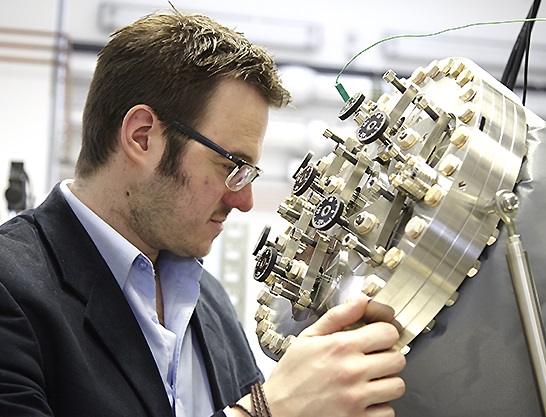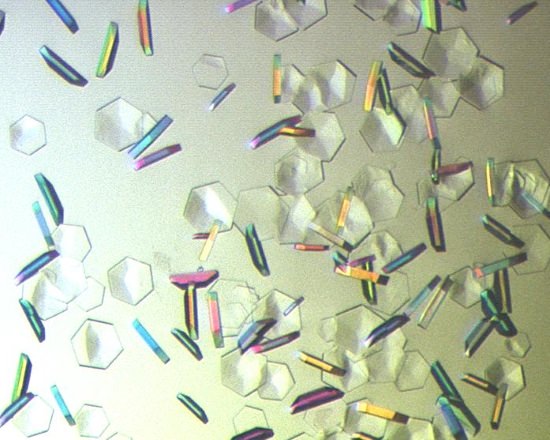See our tips for applicants to this scheme
About the scheme
The Dorothy Hodgkin Fellowship (DHF) programme aims to support outstanding early career scientists who require a flexible working pattern due to personal circumstances, such as caring responsibilities and/or health-related conditions. The objectives of the DHF programme are to enable the next generation of research leaders to:
- Build an independent research career at a UK university or research institution
- Gain the freedom, time and long-term flexible support to pursue high quality and innovative lines of scientific research
- Develop as a research leader by offering tailored, high quality professional development, networking and engagement opportunities.
Fellowships are for eight years, with years six to eight being subject to satisfactory progress demonstrated in a mid-fellowship review at year four.
The Royal Society recognises that diversity is essential for delivering excellence in science, technology, engineering and mathematics (STEM). The Society wants to encourage applications from the widest range of backgrounds, perspectives and experiences to maximise innovation and creativity in science for the benefit of humanity. We regularly review and revise policies and processes to embed equity, diversity and inclusion (EDI) principles in all aspects of the grant making process and ensure all talented applicants have an equitable chance to succeed as per the assessment criteria.
See below for details of adjustments we can provide for disabled applicants.
Changes to the scheme
As part of the Royal Society’s wider changes to our costing policy, applicants are now permitted to apply for a maximum award value over eight years (£1.83 million for the 2024 round). Maximum caps for salary contribution and research costs have been removed and going forward there will be a total maximum grant value for applicants to work with.
We recommend reading the information in full and contacting your host organisation Research Office in the first instance with any questions.
What does the scheme offer?
Applicants can apply for up to a maximum of £1.83 million over eight years.
Funds can cover:
- Contribution to the award holder’s salary
- Indirect and estate costs
- Equipment costs and research expenses including consumables, travel, etc.
- Contribution towards research assistance salary and associated indirect and estate costs
- Support for a new four-year PhD studentship(s)
- Relocation and visa costs for the applicants and their dependants (partner and children). The total grant cap may be exceeded in order to cover relocation/visa costs if this is well justified in the application.
Full funding details can be found in the scheme notes and in the Royal Society Funding Guidance.
We provide flexibility to accommodate personal circumstances including part-time working for health reasons or caring responsibilities. There is provision for maternity, paternity, shared parental, adoptive or extended sick leave, as well as financial support for childcare costs that arise from attending conferences and research visits.
Royal Society Research Fellows also have the opportunity to access a range of career development and engagement opportunities including training on leadership, science communication and public engagement, and activities coordinated by our science policy and schools engagement teams. For further detail on these additional benefits, read our opportunities page.
Royal Society awards have made a significant impact on many researchers’ careers. Case studies from grant-holders can be found elsewhere on this page, or read an in-depth report on the careers of our alumni on our Career Pathway Tracker page.
This scheme is for you if:
- You currently have, or will have by the start of the fellowship, a need for flexible support due to personal circumstances. This can include parental responsibilities, caring responsibilities, and/or clinically diagnosed health conditions that create a need for a flexible working pattern
- You are in the early stages of your research career having up to six years of research experience since your PhD by the closing date of the round (discounting career breaks)
- You do not hold a permanent post (including proleptic appointment) in a university or not-for-profit organisation
- You do not hold, or have not previously held, an equivalent fellowship that provides an opportunity to establish an independent research group and therefore independent research status
- Your research is within the Royal Society’s remit of natural sciences, which includes but is not limited to biological research and biomedical sciences, chemistry, engineering, mathematics and physics. For a full list, please see the breakdown of subject groups and areas supported by the Royal Society.
Applicants can be of any nationality and those requiring a visa are eligible to apply for a Global Talent Visa under the fast-track process of endorsement.
Read the scheme notes for further information on eligibility. Please ensure that you meet all eligibility requirements before applying.
You will apply through our application and grant management system, Flexi-Grant®.
See the ‘Application and assessment process’ page for a general overview of the application and selection steps and below for details specific to this scheme.
Assessment of your application will be overseen by the Dorothy Hodgkin Fellowship Panel. Your need for flexibility will only be viewed by the Society’s Grants team to check your eligibility for the scheme. Following eligibility checks, applications are initially assessed by two panel members who have the most appropriate scientific expertise. A longlist is drawn up, with longlisted applications subject to independent peer review. Following completion of independent peer review, a shortlist for interview is drawn up with oversight from the Panel Chair. At the end of the interview stage, the Panel will confirm the recommendations for funding.
Further detail on the application and review process is available in the scheme notes.
For the Dorothy Hodgkin Fellowship, shortlisted applicants will be invited to an in-person interview at the Royal Society.
The aim of the interview is for you to demonstrate the importance and scientific validity of your work and for you to also describe how the award will lead to your scientific independence.
The Royal Society welcomes applications from scientists with disabilities and provides adjustments to ensure that they can participate fully in the selection process. If you need an adjustment when accessing the application form, attending interviews, or for any other part of the application process, please contact the Grants team via email or +44 20 7451 2666. Adjustments can include, but are not limited to:
- extension of the deadline
- additional support to complete the application form
- technical support during interviews for candidates with hearing or visual impairments
- support during interviews for neurodiverse candidates and candidates with mental health conditions
- additional costs to support candidates requiring a chaperone during interviews.
Contact
If you have further questions regarding the scheme, please see the FAQs or contact the Grants team on DHF@royalsociety.org or visit our contact us page.





